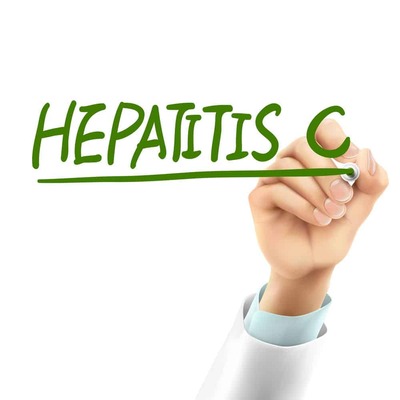
Hepatitis C is a virus that affects the liver and can contribute to serious liver damage. An estimated 71 million people globally have chronic hepatitis C virus infection, according to the Health World Organization. In the United States, about 2.4 million people suffer from hepatitis C. The common symptoms of hepatitis C include:
Severe fatigue
Muscle pain
Joint pain
Fever
Nausea
Poor appetite
Stomachache
Itchy skin
Dark urine
Jaundice (A yellow discoloration of the skin and whites of the eyes).
Unfortunately, hepatitis C is incurable but it can be managed. Untreated hepatitis C can provoke liver damage and lead to liver cancer. It’s a bloodborne infection, meaning it spreads through contact with the blood of an infected person.
If you've been diagnosed with hepatitis C recently, you probably have lots of questions to your healthcare provider. The good news is that many people with hepatitis C can relieve their symptoms. This means you can prevent liver damage and live a normal life. Here are six important steps that can help you stay healthy and strong:
1. Work with your care team
It’s essential to stay in contact with your doctor. Your healthcare provider will help you understand how hepatitis C impacts your body through several tests. Depending on the strain of your virus your care team will plan your treatment.
It’s also important to evaluate the damage that has been done to your liver. You might need to perform an abdominal ultrasound or liver elastography. If you have to delay your treatment, be sure to track your condition with the proper tests like liver enzyme tests and the regular ones that monitor your viral load.
2. Stick to a healthy lifestyle
A healthy lifestyle for people with hepatitis should include:
Maintaining a healthy weight
Being physically active
Avoiding dehydration
Managing stress levels
Avoiding supplements that might harm your liver
Eating a healthy diet
Hepatitis C is not a death sentence but you should stick to these rules and know your risks. You also have options that can improve your liver health, for instance, supplementation. Here are some supplements that might support your liver health:
Lactoferrin
Selenium
Caffeine
Vitamin D
Vitamin B12
Another good option might be an IV vitamin therapy. This is a good way to provide your body with essential vitamins and minerals. IV vitamin therapy can improve your energy levels and support your immune system.
3. Take care of your mental health
Many people with hepatitis C report that their diagnosis was a traumatic experience. Moreover, previous medications for hepatitis C increased the risk of depression, but new drugs have fewer emotional side effects. If you’re experiencing anxiety or depression, turn to a psychologist.
4. Follow your treatment plan
The Centers for Disease Control and Prevention report that current medications can cure in as little as eight weeks. But not all medications are appropriate for everyone. Listen to your body to understand which treatment plan is best for you.
Pay attention to how you’re taking your meds since incorrect use of drugs for hepatitis C might be dangerous. Don’t forget to tell your healthcare provider about any medications or supplements you’re currently taking.
5. Avoid exposure to toxins and substances that harm your liver
In addition to sticking to a healthy lifestyle, balanced diet, and treatment, you need to quit bad habits to reduce your toxin exposure. Your liver is responsible for detoxification. Any toxin, poison, and medications that enter your body are eliminated by your liver.
Since your liver is inflamed due to hepatitis C, it can’t function well. Any toxin exposure puts additional stress on your liver leading to more damage. Alcohol consumption can result in cirrhosis and advanced liver disease. Smoking can also provoke liver damage. Talk to your doctor if you can’t quit alcohol, tobacco, or drug dependence.
6. Try avoiding reinfection
Successfully treating hepatitis C doesn’t protect you against reinfection. After treatment, you should consider preventing reinfection. Since hepatitis C is a bloodborne infection, it can get your body through sharing needles or drug paraphernalia, having unprotected sex with unknown sex partners, or getting a tattoo or piercing. Buy a new toothbrush and razor blade once your viral load drops to an undetectable level.

